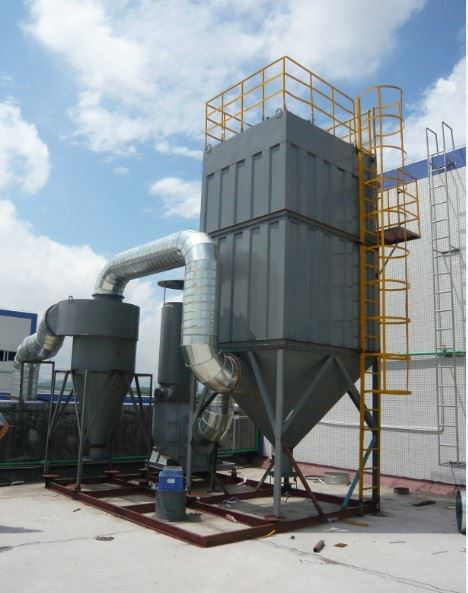
Description
Industrial dust collector is affected by the size of the dust particles. Generally speaking, under the same device and the same operating conditions, the performance of the dust collector is also significantly different due to the different dispersion of the dust particles. The grading dust...
Share:
Industrial dust control system is affected by the size of the dust particles. Generally speaking, under the same device and the same operating conditions, the performance of the dust collector is also significantly different due to the different dispersion of the dust particles.
The grading dust removal efficiency refers to the dust removal efficiency for dust in a certain particle size range, which reflects the average particle size at the outlet and the amount of dust in a certain particle size range, and the collection amount of dust in a certain particle size range.
Different industrial dust control systems have different classification efficiency. The particle size and density of dust affect the classification dust removal efficiency of industrial dust control systems. At the same time, the classification dust removal efficiency is also very related to the physical properties of the dust such as cohesion, adsorption and chargeability. Because of the large relationship, it is impossible to simply classify each type of industrial dust collector according to their graded dust removal efficiency.
Accurately grasping the dust particle size and its classification dust removal efficiency is the basis for choosing the type of industrial dust collector. The corresponding relationship between the dust particle size of various dust collectors and their classification dust removal efficiency is different. When the particle size is more than a few microns, the centrifugal dust collector should be selected. When the dust particles below a few microns account for most, the electric dust removal should be selected. Filter or industrial filter dust collector, etc.
The advantages of wet dust collectors are: (1) Because of the simultaneous mass transfer and heat transfer during the contact between gas and liquid, this type of dust collector not only has the function of dust removal, but also has the function of cooling flue gas and absorbing harmful gases. (2) Suitable for handling high temperature, flammable, explosive and harmful gases. (3) Normal operation and high purification efficiency. (4) Dust and gas that can be used for fog and dust accumulation. (5) The exhaust volume is constant. (6) Simple structure, small floor space and low investment. (7) Safe operation, convenient operation and maintenance.
The disadvantages of the wet dust collector are: (1) The mud discharged from the wet dust collector must be treated, otherwise it will cause secondary pollution. (2) When purifying corrosive gases, the chemical corrosivity is transferred to the water, so the sewage system should be protected with anticorrosive materials. (3) Not suitable for hydrophobic fume; for sticky fume, it is easy to block pipes, blades, etc. (4) Compared with dry dust collectors, they consume water and are difficult to handle. Antifreeze measures should be adopted in severe cold areas.
We produce industrial dust control systems.